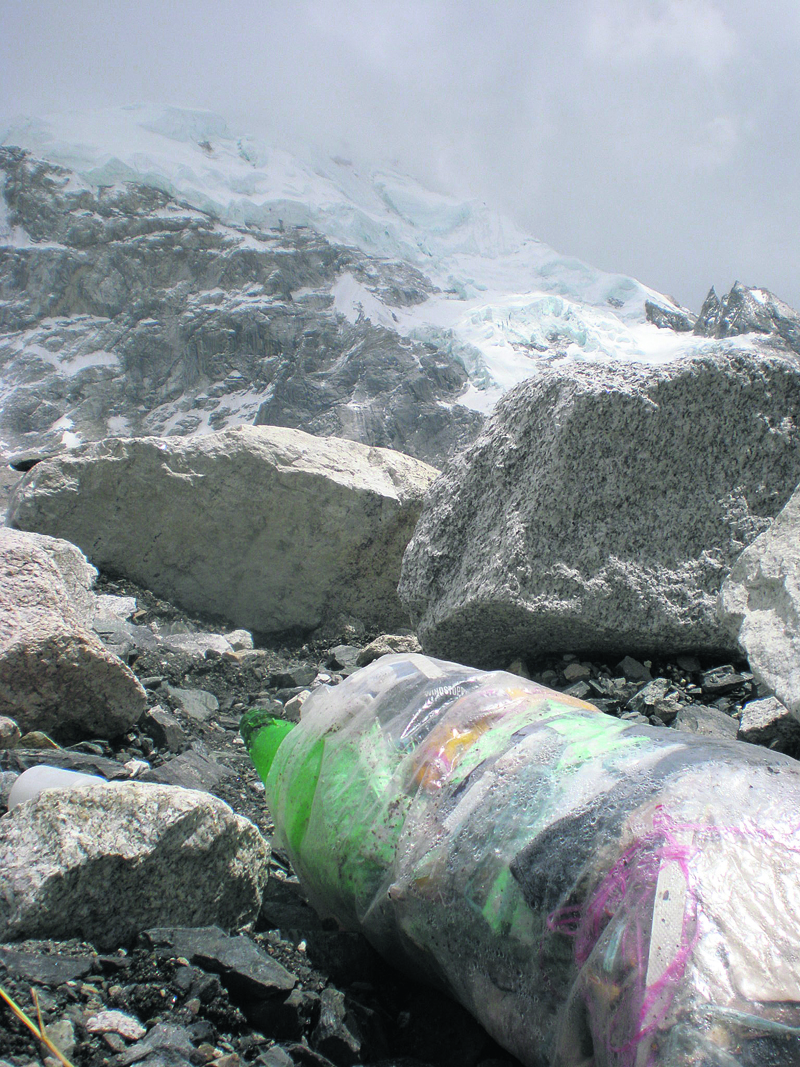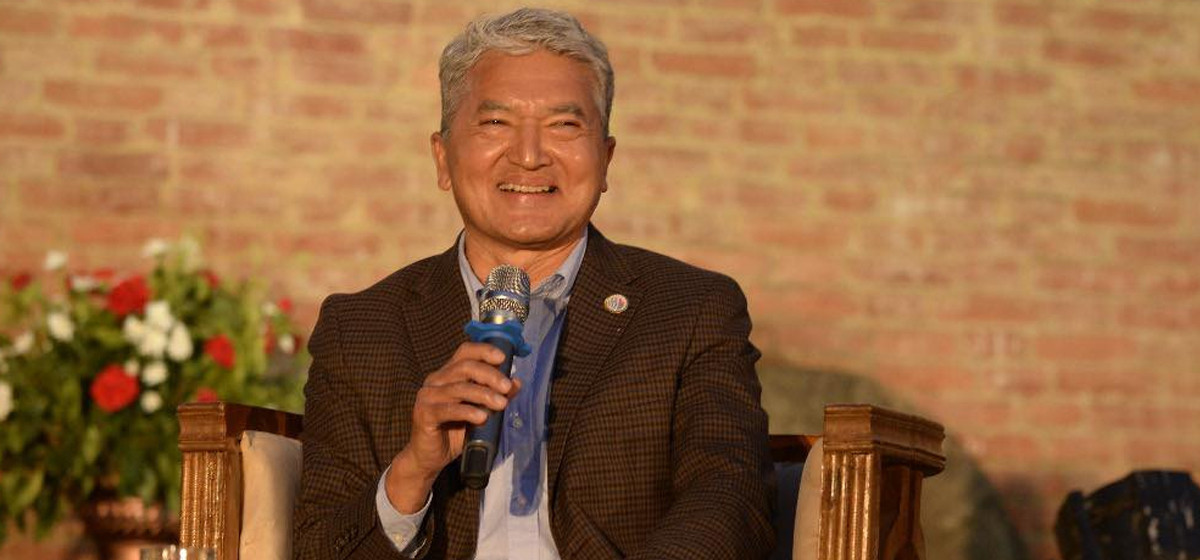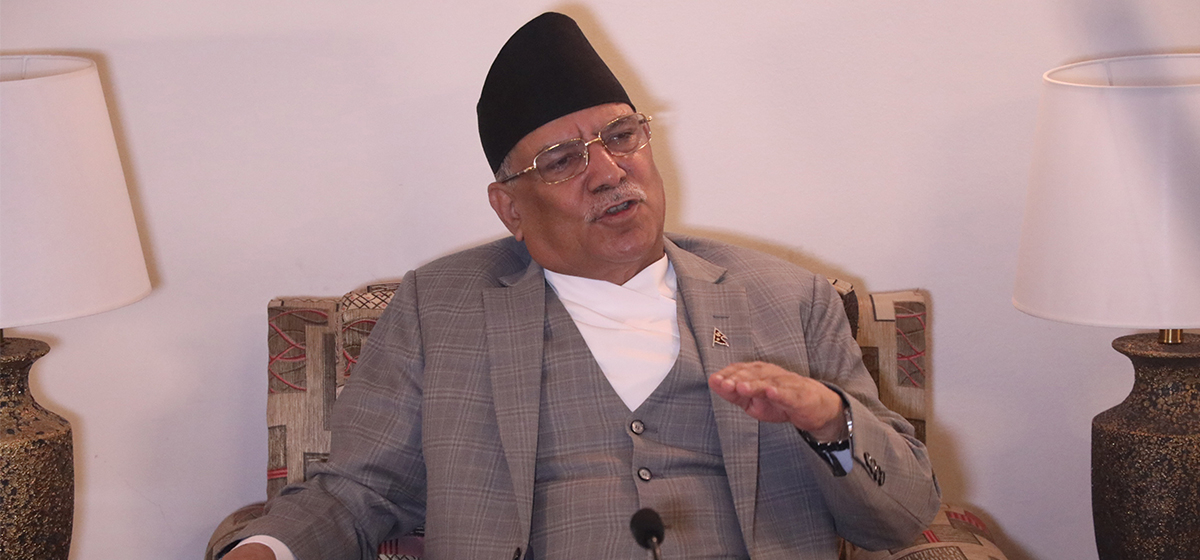
OR
Open defecation in Everest poses risk of health hazard
Published On: February 9, 2017 12:00 AM NPT By: Radha Dhungana

SOLKHUMBU, Feb 9: Despite attempts to get rid of garbage dumped at Mount Everest, the ever growing open defecation in the once sacred mountain is posing serious threat to its cleanliness as well as possible outbreak of diseases in the lowlands.
Over 3,000 tourists and their porters travel through the Everest Base Camp in Solukhumbu district during the peak of trekking season. Open defecation by such a large number of trekkers above the base camp has become a huge problem for the cleanliness of the world's highest mountain.
“Waste management has become a problem in this region despite attempts to clean the mountain,” said Dorjee Sherpa, a member of Sagarmatha Pollution Control Committee (SPCC).
Climbers who summit Everest, Lhotse and Nuptse must abide by the law which states that the climbers must bring back at least 8 kg of waste matter, including human feaces, from the mountains to the base camp situated at 5300 meters. Thereafter, the SPCC collects the waste matter and sends it to the nearest settlement at Gorakshep (5164 m) for burying them under large pits. Since the area can accommodate no more waste matter, the dumping site has been recently shifted further down to Lobuche.
The pollutants do not get decomposed in the low temperatures of Gorakshep and Lobuche, posing risk of health hazards if the fecal wastes get mixed with the source of water in the region.
Mingmar Sherpa, a local of Gorakshep, says that lots of pits have been dug to bury the waste but the waste matters get exposed during rainy season posing risk for health hazard.
The collection of fecal waste has been ever growing at the Everest Base Camp.
In 2014, the collection of fecal waste was 5910 kg, which increased to about 9000 kg in 2015, and further increased to 10,425 kg in 2016, according to the Namche-based SPCC office.
The increasing amount of waste matter at Gorakshep and Lobuche affects people living in the lower regions as the highlands serve as source of water for people living further down the glacial strip.
Furthermore, a major problem is that the waste matter does not get decomposed in the cold climate. Locals have demanded that the waste be brought further down to warmer region and safely disposed off through a gas plant.
You May Like This

High number of climbers poses risk of a 'traffic jam' at Everest
SOLUKHUMBU, April 15: A surging number of mountaineering expedition teams at Mt Everest is posing a risk of a 'traffic... Read More...

Health risk of e-cigarette
Some of the ingredients in e-cigarette aerosol could also be harmful to the lungs in the long-term. ... Read More...




Just In
- Nepal to gift two elephants to Qatar during Emir's state visit
- NUP Chair Shrestha: Resham Chaudhary, convicted in Tikapur murder case, ineligible for party membership
- Dr Ram Kantha Makaju Shrestha: A visionary leader transforming healthcare in Nepal
- Let us present practical projects, not 'wish list': PM Dahal
- President Paudel requests Emir of Qatar to initiate release of Bipin Joshi
- Emir of Qatar and President Paudel hold discussions at Sheetal Niwas
- Devi Khadka: The champion of sexual violence victims
- Nagarik Nayak Felicitation (Live)



_20240423174443.jpg)










Leave A Comment